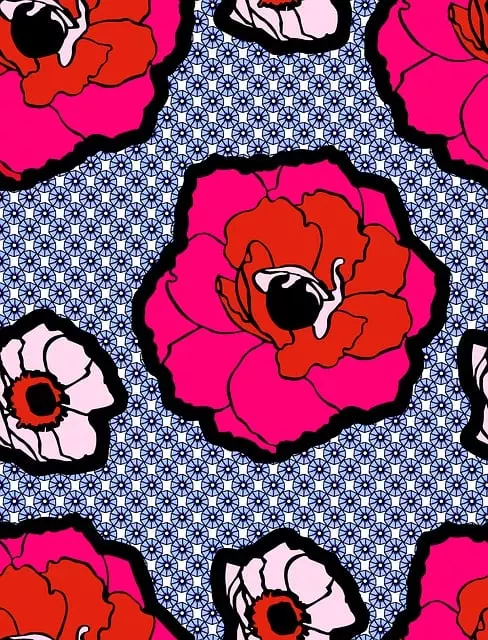This text discusses a comprehensive strategy for addressing hair loss that integrates mental resilience techniques with the potential benefits of kratom as a complementary measure. Kratom, derived from the Mitragyna speciosa tree, is known for its health-promoting properties, including stress management and support for well-being, which are crucial in the hair growth cycle. Mental resilience strategies like mindfulness, positive affirmations, and cognitive restructuring can enhance one's ability to cope with hair loss and may contribute to an environment that supports hair regrowth by reducing stress. The approach also emphasizes the importance of consulting healthcare professionals for proper kratom use and dosage as part of a holistic treatment plan. The potential for kratom to support the body's healing processes and promote healthier hair follicles is explored, highlighting its role in both mental training and hair health. Preliminary research suggests that certain alkaloids in kratom may stimulate hair regeneration, offering hope for those seeking natural remedies for hair loss. The integration of kratom into a regimen for enhancing mental resilience and addressing hair loss is presented as a promising holistic approach that could lead to improved overall vitality, with further research encouraged to substantiate these findings. Users are advised to consider the legal status of kratom and to use it judiciously while seeking professional guidance.
Exploring the intersection of mental fortitude and hair health, this article delves into the transformative potential of kratom in addressing both concerns. “Cultivating Resilience and Regrowth: Integrating Mental Toughness Strategies with Kratom for Hair Loss Recovery” unveils how kratom’s active compounds can not only stimulate hair regrowth but also bolster mental resilience. Understanding the mechanisms behind kratom’s role in hair regeneration and its broader impact on mental endurance sets the stage for “Understanding Kratom’s Role in Hair Regeneration and Its Impact on Mental Fortitude.” Finally, “Practical Approaches to Enhancing Mental Resilience and Encouraging Hair Growth Through Kratom” offers actionable insights for those seeking to harness kratom’s benefits to overcome hair loss and strengthen their mental toughness. This article is an invaluable resource for anyone interested in the healing properties of kratom, particularly regarding its impact on hair health and psychological well-being.
- Cultivating Resilience and Regrowth: Integrating Mental Toughness Strategies with Kratom for Hair Loss Recovery
- Understanding Kratom's Role in Hair Regeneration and Its Impact on Mental Fortitude
- Practical Approaches to Enhancing Mental Resilience and Encouraging Hair Growth Through Kratom
Cultivating Resilience and Regrowth: Integrating Mental Toughness Strategies with Kratom for Hair Loss Recovery

Embarking on a journey to reverse hair loss can be fraught with challenges, but integrating mental toughness strategies alongside kratom’s potential benefits may offer a holistic approach to cultivating resilience and encouraging hair regrowth. Kratom, derived from the Mitragyna speciosa tree, has been traditionally used for its various health-promoting properties, some of which include supporting well-being and managing stress—factors that are crucial in maintaining a healthy hair growth cycle. When faced with the setback of hair loss, adopting mental resilience techniques can empower individuals to navigate this challenge more effectively. Mindfulness practices, positive affirmations, and cognitive restructuring are examples of mental toughness strategies that can enhance one’s psychological fortitude. These approaches not only help in coping with the emotional impact of hair loss but also contribute to an environment conducive to hair regrowth by reducing stress hormones that may impede recovery.
Incorporating kratom into a comprehensive hair loss recovery plan involves careful consideration of its effects and proper dosage, as outlined by health professionals. The alkaloids present in kratom may interact with the body’s hormonal balance and neurotransmitter systems, which are key players in hair growth regulation. By adopting a regimen that includes kratom, individuals can potentially support the body’s natural healing processes and promote hair follicle health. It is important to maintain regular check-ins with healthcare providers to monitor progress and adjust the strategy as needed, ensuring a safe and effective approach to both mental wellness and physical recovery from hair loss. The integration of mental toughness training with kratom use for hair regrowth underscores the importance of a multi-faceted approach that addresses both the psychological and physiological aspects of this health concern.
Understanding Kratom's Role in Hair Regeneration and Its Impact on Mental Fortitude

Kratom, a plant from Southeast Asia, has garnered attention for its diverse pharmacological effects, among which are its potential impacts on hair health. Research suggests that certain alkaloids found in kratom may play a role in promoting hair regeneration, offering hope to individuals experiencing hair loss. The mechanisms by which kratom might influence hair growth are complex and involve its interaction with the body’s hormonal systems, as well as its anti-inflammatory properties that can help reduce the factors contributing to hair loss. For those looking to counteract hair loss or encourage hair to grow back, incorporating kratom into a holistic regimen could be beneficial. This is particularly relevant for individuals seeking natural alternatives to conventional treatments.
Beyond its potential for hair regeneration, the use of kratom as part of mental toughness strategies can have a significant impact on one’s psychological resilience. The plant’s alkaloids, mitragynine and 7-hydroxymitragynine, are known to affect mood and cognition, potentially enhancing focus, motivation, and endurance, which are critical components of mental fortitude. By integrating kratom into a comprehensive training program designed to build mental toughness, individuals may find that they can better manage stress, maintain concentration during demanding tasks, and recover from setbacks more effectively. This dual approach, addressing both physical hair regrowth and mental well-being, can contribute to an overall sense of vitality and self-assurance. As such, kratom’s role in hair regeneration and its influence on mental fortitude are subjects of growing interest, warranting further scientific investigation to fully understand its potential benefits and appropriate usage within health and wellness practices.
Practical Approaches to Enhancing Mental Resilience and Encouraging Hair Growth Through Kratom

Integrating kratom into a regimen aimed at enhancing mental resilience can be a multifaceted approach. Kratom, a plant-based supplement derived from Mitragyna speciosa, is known for its potential psychological benefits, which may contribute to mental fortitude. For individuals experiencing hair loss, often associated with stress and hormonal imbalances, kratom’s influence on mood regulation could indirectly support healthier hair growth. Specifically, strains like Maeng Da are touted for their adaptogenic properties, which help the body manage and respond to stress more effectively. This stress management aspect is crucial because chronic stress is a significant contributor to hair loss conditions such as alopecia. By mitigating the effects of stress, kratom may play a role in reducing the impact on hair follicles and promoting healthy hair growth over time, particularly when combined with proper nutrition and care.
Furthermore, kratom’s potential to enhance focus and concentration can be leveraged to maintain consistent self-care routines, including those for hair health. Regularly applied topical treatments, coupled with a balanced diet rich in vitamins and minerals, can complement the use of kratom. It’s important to approach the integration of kratom into one’s lifestyle with caution, as it is a potent substance that requires careful dosage and consideration of individual health factors. Consulting with healthcare professionals before starting any new regimen, including kratom for hair loss grow back or mental resilience, is advisable to ensure safety and efficacy. Users should also be aware of the legal status of kratom in their region, as it varies by country and state. With a holistic approach that includes physical, mental, and emotional well-being practices, kratom may be a valuable tool for those seeking to address hair loss issues while building mental resilience.
In concluding our exploration of mental toughness strategies intertwined with kratom training, it’s clear that this natural supplement can be a pivotal component in both hair loss recovery and bolstering one’s mental resilience. The strategies outlined, particularly under ‘Cultivating Resilience and Regrowth: Integrating Mental Toughness Strategies with Kratom for Hair Loss Recovery,’ demonstrate how kratom may aid in hair regrowth, a process that is closely linked to the psychological well-being of individuals affected by hair loss. The section ‘Understanding Kratom’s Role in Hair Regeneration and Its Impact on Mental Fortitude’ delves into the biological mechanisms behind kratom’s effects, providing a solid foundation for its potential in promoting mental toughness. Finally, ‘Practical Approaches to Enhancing Mental Resilience and Encouraging Hair Growth Through Kratom’ offers actionable advice for those looking to harness the benefits of kratom in their journey towards overcoming hair loss and building mental fortitude. It is with these insights that individuals can approach their challenges with renewed confidence and a holistic strategy for both physical and mental regeneration.






